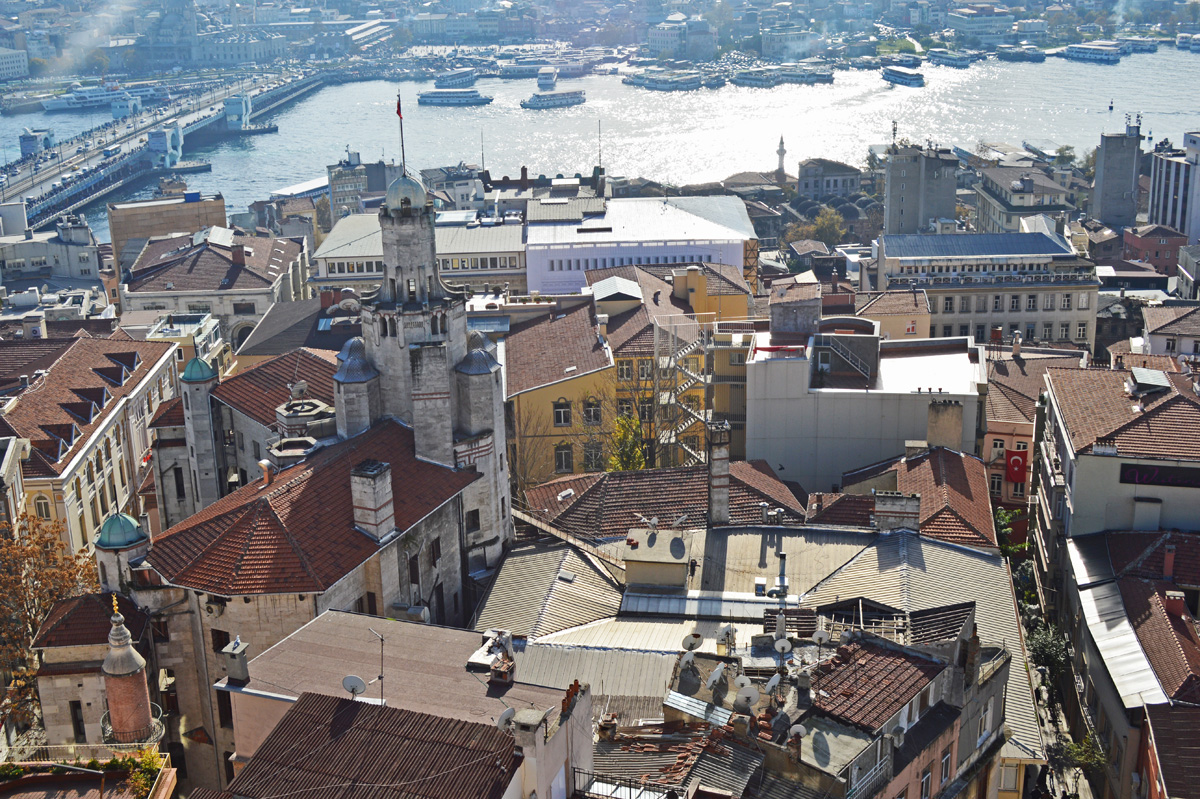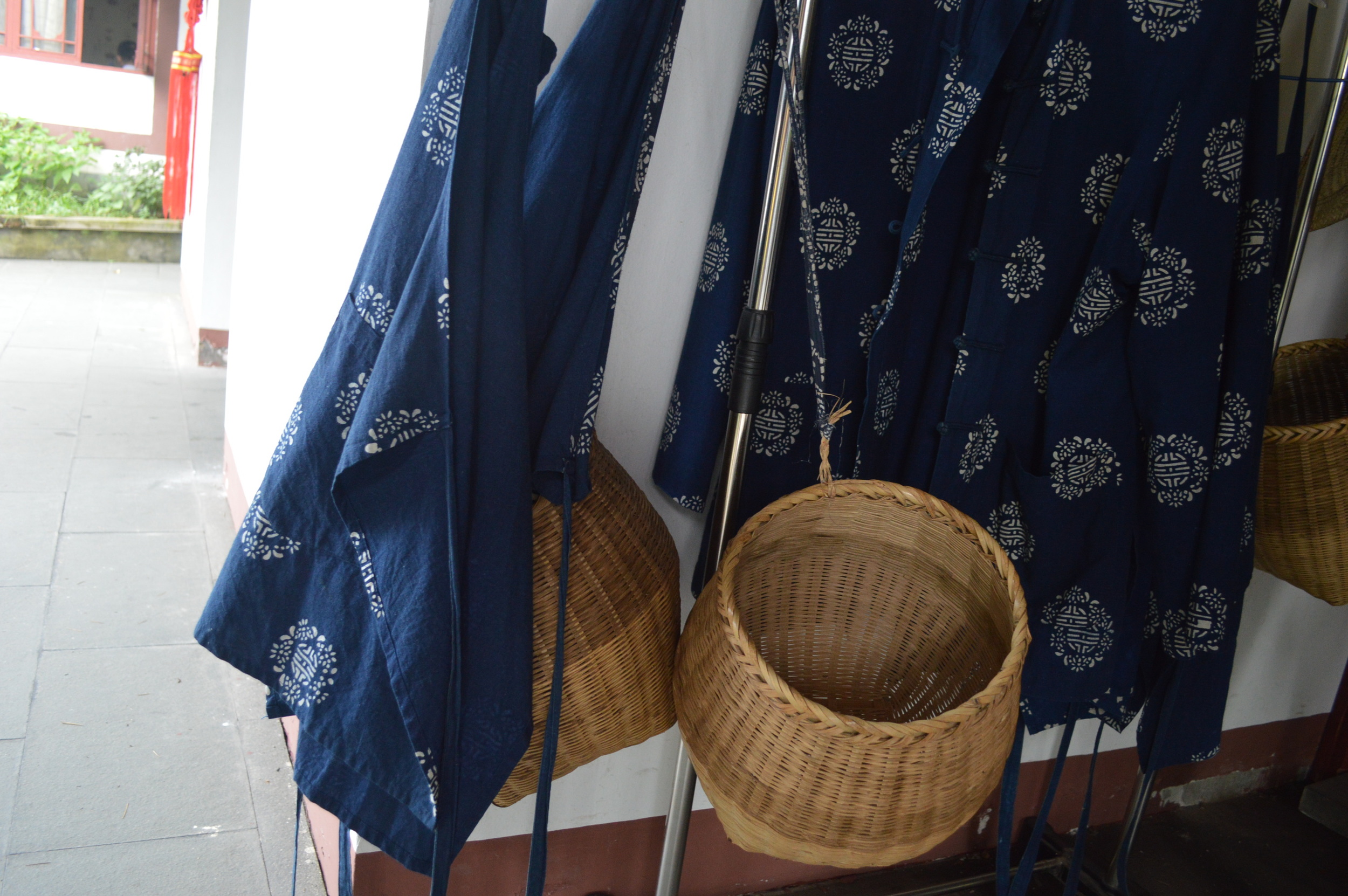Depending on what type of trip you're going on, the planning process can feel overwhelming with so many pieces of the puzzle. You have to figure out the best time to go, get the best flight deals, figure out where to stay, what to do, and which apps are worth downloading. Look no further - here are the best online travel resources for planning your next trip:
Why You Should Keep a Travel Journal When You Study Abroad
Most internet lists about traveling are along the lines of, "10 things you must do when you're in [insert city here]." Those lists are helpful to anyone about to head out on a trip, but a "must-do" that is often left out is documenting your travels - with more than just posing for a few quick snaps along the way.
Memories fade. No matter how vivid last week's day trip is in your mind right now, it will undoubtedly diminish in your head over time. You may remember the main points, but having a record of the details will bring you back. For example, maybe you visited a winery in Tuscany while you were abroad. The wine was good, and you remember the area being kind of pretty...?
7 Tips To Prepare For Your Trip To China
7 Tips To Help You Prepare For Your Trip To China
7 Useful Tips For Anyone Heading To China!
Heading to China? Here are some essential tips to help you prepare for the exciting journey ahead!
Especially if you are from a Western country and have never been to China, you'll definitely want to ensure you read through this post as it covers the basics of this complicated, exciting, and very unique place in the world.
(Please keep in mind that I am writing this from the perspective of having visited main cities like Beijing, Hangzhou, and Shanghai!)
1. Get your visa
If you need a tourist visa - chances are, you do - provide plenty of time beforehand to get one. You'll need to drop off or send in your passport to the embassy or consulate to get your visa inserted.
One of the cool things about being a U.S. Citizen is that the Chinese visa lasts 10 years! That makes the price not seem so bad, knowing you can return within the decade.
The Bund Shanghai Skyline during the daytime
2. Know the address of the first place you're staying
You will need this for your departure card at customs. The woman sitting next to me on the plane was filling her card out and didn't know the location since she was going on a tour. Make sure you know the address so you can smoothly move through customs.
3. Have the address of your hotel written out in Chinese characters, if possible
Not many people in China speak English, especially cab drivers. Having a printed out version of the characters will make it a lot easier to show a cab driver where your hotel/place of accommodation is upon arrival. You can find the character version on the hotel's website.
The Great Wall of China
4. Learn basic Chinese phrases
Hello (ni hao) and thank you (xixi) go far in any country. Also try to learn the words for any foods you may have allergies to so you can communicate that at restaurants. Mandarin is an extremely difficult language to learn and pronounce for non-native speakers, so don't beat yourself up if you can't learn a whole lot prior to departure.
Hangzhou Monks
5. Prior to leaving, download VPN apps
Jokingly referred to as "The Great Firewall of China," you'll notice that many popular websites are censored in China. If you'd like to have access to blocked sites such as Google, Gmail, YouTube, Instagram, Facebook, Twitter, Netflix, etc. you will need to download a VPN prior to arriving in China.
There are a number of free or paid VPNs you can find. I used Hola on both my desktop and iPhone, and also SurfEasy on my iPhone. I recommend having a backup VPN on each device - my Hola stopped working on my desktop and there was no way for me to download a new VPN after that (because the sites to download a VPN are also blocked, obviously). I used the paid 1-month version of SurfEasy for $5 and then canceled my subscription after I got home.
Here is a full list of blocked websites in mainland China.
VPNs I currently use when traveling (updated 2017):
TunnelBear
SurfEasy
Also, since this post was originally published I am aware that Netflix and Hulu do not allow you to access their sites in other countries, even if you are using a VPN that changes the appearance of your country location (found out about this in Europe!). I personally haven't had issues with the other sites on VPNs, though.
Forbidden City
6. Get plug adapters
China and Australia have same/similar electrical outlets, so make sure if you're not from there to get an adapter. The voltage in Chinese outlets is 220V, so also check your electrical appliances to make sure they're the correct voltage.
VIDEO: How To Use Travel Adapters!
Chinese Street Meat
7. Be open-minded
If you come across something completely different than what you're used to at home, try to be open-minded and go with the flow. For example, as an American I had never used a squat toilet or been to a public bathroom without toilet paper. However, there are both squat and throne-style toilets in China that may or may not have TP and soap. Instead of complaining, be prepared by keeping pocket tissues on hand as well as a small bottle of hand sanitizer.
If you've never been to China you may experience many cultural differences in China in terms of food, social norms, and communication. Embrace it and enjoy it!
GOING TO CHINA SOON?
Book a place to stay - my all-time favorite booking website is the well-known Booking.com - I’ve used it for years all over the world.
It is the easiest way to search and find the best hotels (hostels too!), especially based on reviews. I always check the reviews on Booking, even if it’s a name-brand hotel. You never know!
READ NEXT:
China Travel Guide
10 Foods You Must Try in China
A Few Things That Surprised Me About China
7 Things Travelers Always Need To Explain To Others
Traveling is one of the most thrilling things we can do with our lives. Some people don't get it, but we do.  1. Experiences > Things
1. Experiences > Things
If we had to choose between an enormous mansion complete with a butler and a designer wardrobe versus a life of traveling everywhere to exotic places, we'd choose the latter every time.
Life gets boring when you spend all your money on material things that lose their excitement easily. Actually living and creating memories last forever.

2. We're always planning the next trip.
...even if we're on our current one. There are so many places to see in the world and so little time on this earth to explore it.

3. We want to go everywhere.
Some travelers make it their life goal to see every country in the entire world. Even if that's not a goal for everyone, you can bet destinations that aren't on the list for your average person are on ours: Romania? Yes! Malta? Absolutely! Namibia? That would be awesome. Mongolia? Why not!

4. If we're not traveling, we're daydreaming about it.
Whether it comes in the form of reading travel books or "exploring" somewhere via Google Street View, it's always on our minds. We constantly talk about travel and the cool places we've been and want to go - to the point where it slightly annoys our friends.

5. We've learned so much through traveling.
Travel has allowed us to learn so much more than by simply reading a book or hearing about someone else's tales. We experience different places firsthand. We interact with people from other cultures in person. This is perhaps the best way to know the world. And every time we are able to bring back that learning and let it change us.
6. Eating different cuisines at restaurants will never be the same after eating it in its original country.
I love all the different cuisine options you can find in America. But Panda Express does not cut it - in fact, I don't think I'd ever be able to eat it again - after trying the real stuff in China. Same goes for Olive Garden which passes off as "Italian." When you've eaten the real deal, the Americanized versions just don't do it justice.

7. We encourage those with travel dreams to take the plunge.
Spread the travel love! It's a big, big world out there, and an incredible one at that. No matter how you do it, no matter where you go - it will be worth it. Trust us. Maybe there's that one place (or five) you can't stop dreaming about and it's time to throw out the excuses...if you never go, you'll never know.
Read Next: Can't Decide Where To Go Next? 7 Steps On Choosing Your Next Travel Destination
6 Ways To Travel When You're Still in College
I've already covered how to travel when you have a full-time job, even if your job doesn't have any travel involved (like mine). But what if you're still in school? Don't let the 3-4 month semesters that tie you to campus keep you from seeing the world. Here are some ways to make it happen:

1. Study Abroad
This is the most obvious option which is why it's first on the list. There are so many ways to study abroad, depending on where you go and what type of program you do. You can also choose how long you go - summer, semester, or full academic year. The three main "types" of study abroad are:
1. Faculty-led programs: programs for your school, led by faculty who are typically from your school. You earn academic credit through courses in a different country and your classmates are from your home college. The courses could be equivalent to the ones you take at home, specific to the location, or a mix of both. If you haven't traveled overseas yet, this is a great option to dip a toe in international travel. Examples: Gonzaga-in-Florence in Florence, Italy, ASU Culture, Health, and Environment in Fiji.
2. Third party programs: programs that are through a third party provider. These companies partner with many colleges to offer overseas experiences and transferable credit back to your home institution. Examples: CEA, CIEE, Semester at Sea.
3. Being an international student at another university: applying to another university as an international student and taking classes as an international student. Work closely with your study abroad office and advisor to ensure the credits you take transfer back to your home college. This is a more independent way to go abroad. Example: Foreign exchange semester or full year program at Trinity University in Dublin, Ireland.
Students at the university I work at earned close to $1M total in study abroad scholarships for the '13-'14 academic year. That's a TON of money! If finances are a barrier to go overseas, ask your study abroad office which scholarships are available both within and outside the school.
2. Volunteer
Whether it's domestic, international, or even an alternative spring break, seeing the world through other peoples' eyes will open your mind up to a new perspective while allowing you to help others.
Depending on the type of volunteer program you may even be able to get academic credit or fulfill service learning requirements through volunteering.
3. Summer travel
Use your summer break to travel! I look back on the two months of free time I had in between school years and think, why did I not utilize that time to travel? I worked during the summers, but I didn't realize there are ways to work abroad and get paid.
If you have enough money to get by for the summer then you could go on a trip for fun. Make sure to budget so that you have enough funds to get you by during the school year though, especially if you're not working part-time.
4. Winter break, spring break, and long weekends
Use the extended time off to your advantage with short trips around your hometown, road trips, or even going overseas.
There are some short-term study abroad programs during the breaks or an interim period if your school has one.
5. Get certified to teach English abroad
If you're a native English speaker interested in teaching English after college, this is also a great time to look into TEFL or TESOL certification courses. Some courses are simple online versions, or there are even TEFL/TESOL trips (such as this one with LoveTEFL) that incorporate an intro to teaching abroad while actually being in a different country.
6. Work at the study abroad office
Okay, so you're not actually traveling...but if you're not traveling sometimes the next best thing is to talk about it! Bonus points if you can earn money toward your study abroad. Extra bonus points if you've already gone places and now you get to promote it to students from first-hand experience.
Prepare to travel after college!
Whether you're able to make traveling happen during college or not, there are plenty of ways to travel after college. You could get a job that lets you travel...work a travel job abroad...volunteer with Peace Corps...go backpacking with your friends...take a solo trip as a grad gift to yourself...whatever works for you! Use your free time outside of class to plan, save, and prepare for the ultimate trip.
Read 10 Reasons Why You Should Travel After College and 8 Reasons To Move Abroad to get some more inspo on the subject.
The Best Packing Hack That Took Me Years To Try
 I was always wary of infomercials. When I would get sick and wake up in the middle of the night as a child, I'd flip through the channels and watch the annoying "you must buy this NOW!" ads through bleary eyes. Pointless products would fill the television, with everything from cleaning supplies or the "greatest" weight loss supplement (even though everyone knows weight loss pills do absolutely nothing).
I was always wary of infomercials. When I would get sick and wake up in the middle of the night as a child, I'd flip through the channels and watch the annoying "you must buy this NOW!" ads through bleary eyes. Pointless products would fill the television, with everything from cleaning supplies or the "greatest" weight loss supplement (even though everyone knows weight loss pills do absolutely nothing).
The only one that stood out was: Space Bags.
This was a product that actually seemed like it worked, but I didn't want to be fooled like everyone else who bought into these commercials. When I eventually moved into my college dorm room, my roommate had used space bags to pack most of her clothing and bedding. Genius idea! I thought, though I never made the purchase.
When the time came to move to Washington, DC for the summer after graduation, I had to fit months worth of clothes and shoes into a single suitcase. On a Target run I noticed that SC Johnson/Ziploc acquired Space Bags and gave them a try.
Using space bags is seriously the best packing hack I've ever tried. That summer I used a large suitcase to put a ton of clothes in - and come home with - (I really overpacked...) but was able to fit it all in a large suitcase using a large-sized space bag.
Then, I went to Europe for 2.5 weeks and managed to use just a carry-on and my Longchamp. I used a small, carry-on sized space bag and fit all my clothes in it.
5 Tips For Packing With Space Bags

- Roll the clothes first. Rolling clothes condenses clothes more than folding and will maximize the amount you can fit. If you can't fit all of your clothes in the bag, it's okay - you're still maximizing your space with the clothes you can fit inside.
- Don't overfill the bag. The dotted line where it says "stop" is there for a reason. I've learned my lesson by breaking two bags by overfilling...
- Get all the air out. I don't have the vacuum component that sucks the air out - I just fold and roll the bag until I get as much air out as possible. If you leave air in the bag, it defeats the purpose of using it.
- Organize how the bag is filled by putting what you'll use first in last, and vice versa. This way you can just take out the first items you need when you arrive, without having to unpack all your clothes. Doing this is especially helpful if you are visiting multiple cities and your first stop is short.
- Put an unused dryer sheet in the bag before you zip it closed. This is a general tip for keeping clothes smelling fresh in your suitcase, but also helps keep the scent fresh with the clothes packed tightly together in the bag. I also just found my favorite secret weapon, Febreeze To-Go - a small spray bottle of Febreeze that fits airline regulations! A quick spritz before zipping the bag closed will help keep the your clothes smelling nice.
Visiting a Tea Plantation in Hangzhou, China
I thought those photos of rows upon rows of green plants in an exotic setting were only reserved for rice fields in Southeast Asia or vineyards in Europe or Northern California. Then I went to Hangzhou. Little did I know, tea plantations look similar with rows of greenery, just a little shorter and bushier. I've been to vineyards in various places in the US, but never rice fields, and never a place as beautiful and relaxing as this.
Driving through the winding roads of lush, garden-like greenery set the scene.
As someone who doesn't really drink tea, I still enjoyed learning about how the tea was grown, how the leaves are hand-picked, and certain hot water pouring techniques.
Tea is very much a part of Chinese culture and learning more about it helps you understand more about China.
After the demonstration we walked around and took photos of the surroundings.
We stopped into their store to get some tea, but the salespeople were very pushy. We found that common in many stores in China though, perhaps it was because the gift shop was a "tourist" shop or maybe it's just the culture of shopping. I didn't do enough shopping in China to really understand this, though.
Overall, it was an interesting experience and something I'd definitely recommend to people visiting Hangzhou.
Location: Longjing Imperial Tea Garden
GOING TO CHINA SOON?
Book a place to stay - my all-time favorite booking website is the well-known Booking.com - I’ve used it for years all over the world.
It is the easiest way to search and find the best hotels (hostels too!), especially based on reviews. I always check the reviews on Booking, even if it’s a name-brand hotel. You never know!



























